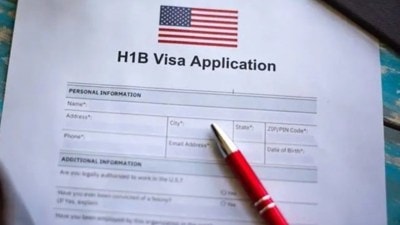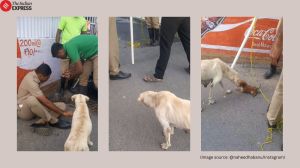Iraq: New enemy may need new tactics
Having focused its combat operations for months on a stubborn Baathist resistance, the US military said on Monday that it could be up agains...

Having focused its combat operations for months on a stubborn Baathist resistance, the US military said on Monday that it could be up against a new and more elusive foreign adversary after a wave of suicide car bombings rocked Baghdad.
As recently as Sunday night, Army Brig. Gen. Martin E. Dempsey, the commander of the 1st Armored Division, said he and his staff had ‘‘not seen any indication of foreign fighters’’ in Baghdad. That assessment changed on Monday after attacks struck three police stations and the headquarters of the Red Cross and Iraqi police captured a man believed to be a Syrian national attempting a suicide bombing at yet another police station.
‘‘What Gen. Dempsey was saying was that we had not seen an attack that we could directly attribute to foreign fighters,’’ Brig. Gen. Mark Hertling, his deputy, said at a news conference after the attacks. ‘‘We have seen those today.’’
He cited the captured Syrian and other ‘‘intelligence indicators’’ as evidence that the attacks were most likely perpetrated by foreigners. But other US commanders in Iraq appeared sceptical that foreign fighters posed much of a threat.
The military could find itself facing two difficult adversaries whose defeat will require different tactics, including intelligence capabilities that have never been the military’s strong suit. While military commanders have increasingly focused on gathering tactical intelligence from Iraqis to generate raids on former Saddam loyalists living in their midst, different intelligence networks would have to be built to go after foreign terrorists.
‘‘There’s a couple of schools of thought on whether there is a replenishment of fighters and where the source of that replenishment may be,’’ Dempsey said. Foreign fighters, on the other hand, could draw from a well of Islamic fundamentalists and recruit foot soldiers.
Retired Marine Lt. Gen. Paul Van Riper said the challenge confronting the military goes far beyond intelligence network and tactics aimed at thwarting terrorist attacks. ‘‘The real question is whether the administration can articulate what its strategy is, and if it can, does the military have a plan to carry out that strategy? Too many are focused on the tactics and not the needed strategic and operational plans,’’ Riper said.(LAT-WP)
| Day after, suicide bomber kills six civilians Story continues below this ad FALLUJAH: At least six people, including children, were killed by a car bomb near a police station in Fallujah on Tuesday, just a day after 43 people died in the bloodiest day in Baghdad since US troops seized the city. Iraqi press condemns suicide attacks Bush blames Baathists, foreigners |



- 01
- 02
- 03
- 04
- 05




























